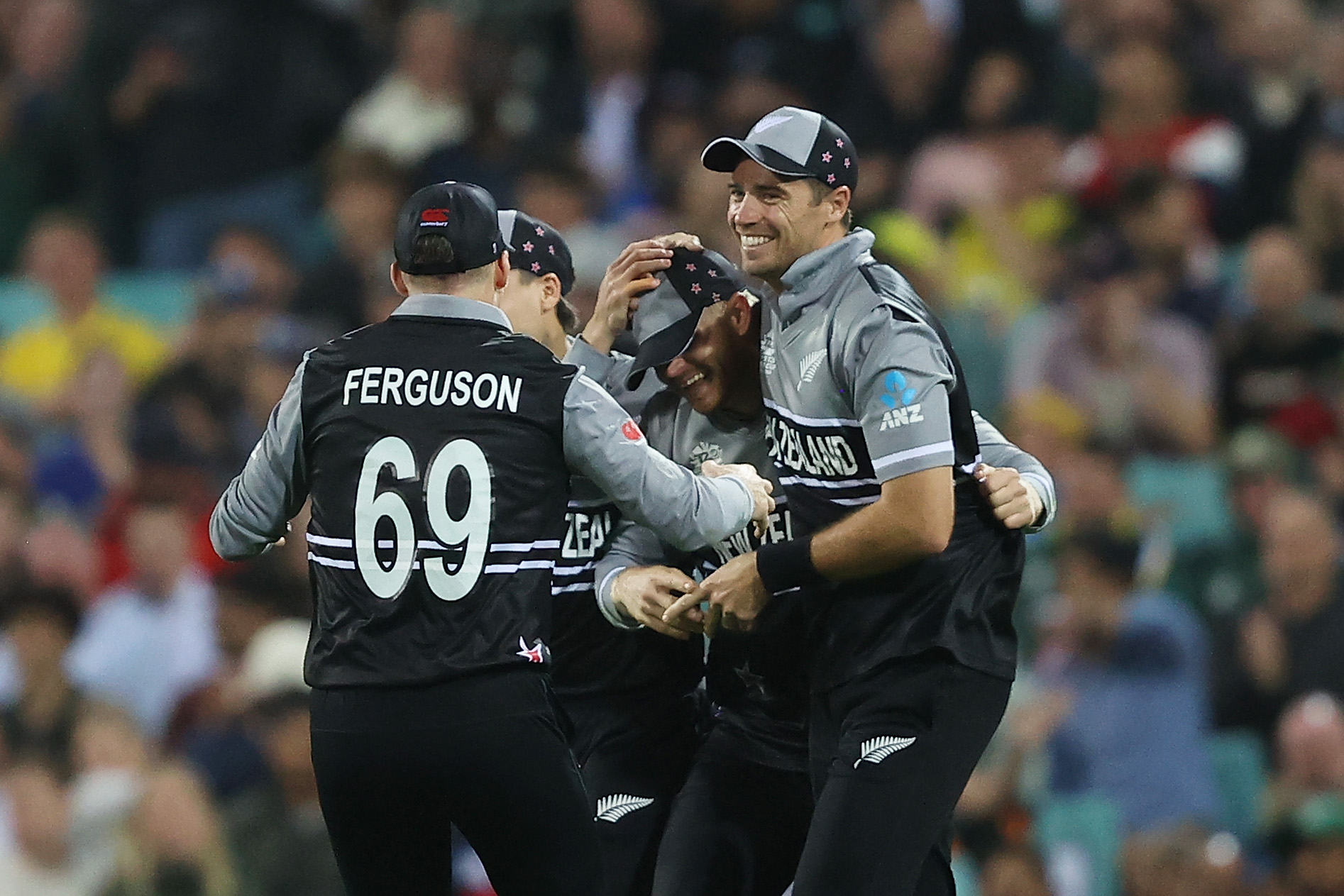

The Marylebone Cricket Club have moved to explain why New Zealand attempted a run out after completing a catch during Wednesday night's T20 World Cup semi-final loss to Pakistan at the Sydney Cricket Ground.
The MCC are the law makers for cricket, and have confirmed that the run out New Zealand enacted after a catch to a high full toss wouldn't have counted, regardless of the decision on the no ball by the third umpire.
With Pakistan on cruise control in their pursuit of 152 at 1 for 132 with 3 overs remaining, opening batsman Mohammad Rizwan hit a full toss into the offside off the bowling of Trent Boult, who was the pick of the bowlers for the Black Caps, ending with 2 for 33.
The shot into the offside from Rizwan would be taken in the deep by Glenn Phillips, however, the immediate concern around whether it would be called a no ball or not saw New Zealand also enact a run out.
It led to confusion with the commentators on air describing it as a 'double play' although no such thing exists in the cricket law book.
The MCC on Twitter have confirmed that, while in this instance the catch stood as the ball was dipping well below waist height, the ball became dead the moment the catch was completed.
There have been a few questions about the dismissal of Mohammad Rizwan in today's Men's T20 World Cup semi-final.
New Zealand, having taken the catch, feared that the third umpire might call No ball, so tried to enact a Run out. (1/5)#MCCLaws | #T20WorldCup pic.twitter.com/RjHTYmiijC
— Marylebone Cricket Club (@MCCOfficial) November 9, 2022
That essentially means that, even if the third umpire had of ruled the ball a no ball, the run out wouldn't have counted and Rizwan would have been able to continue his innings.
Under law 20.6, relating to a dead ball, no ball shall come back into play after becoming dead.
"Once the ball is dead, no revoking of any decision can bring the ball back into play for that delivery."
As a no ball wasn't called by the on-field umpires, the catch at the time it was made was believed to be legal, which makes the ball dead immediately under law 20.1.1.3.
"A batter is dismissed. The ball will be deemed to be dead from the instant of the incident causing the dismissal."
The explanation from the MCC is likely to raise the ire of fans, with similar situations likely where a team could enact the run out but be robbed of the wicket if umpires refuse to make the decision on-field, instead relying on technology.
Pakistan, who ultimately chased down New Zealand's total with five balls to spare, have now advanced to Sunday's final at the Melbourne Cricket Ground where they will await the winner of India and England, who play in the second semi-final at the Adelaide Oval on Thursday evening.





